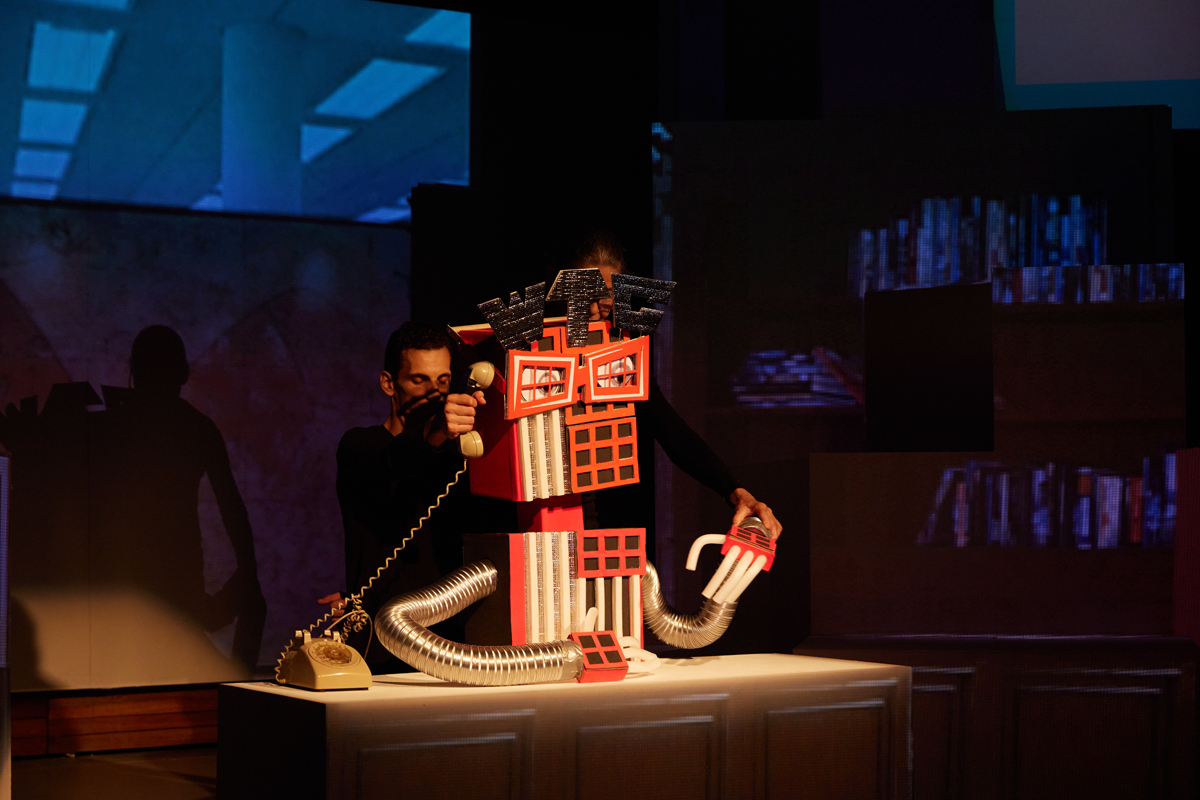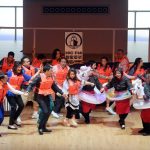 On This Side of Macao – The Quest for Verónica©Antonio Sanmarful
On This Side of Macao – The Quest for Verónica©Antonio Sanmarful
Organised by the Cultural Affairs Bureau, the 33rd Macao Arts Festival (MAF), will be held from 28 April to 28 May. Themed “The Long Artistic Journey”, this edition features 20 selected programmes covering theatre, opera, dance, music and the visual arts, inviting the public to be inspired by art to appreciate the beauty of life and the most beautiful landscapes, looking forward to the future with both a local focus and a global vision.
On 6 and 7 May, at 3:00pm and 8:00pm, at the Macao Contemporary Art Centre – Navy Yard No. 2, the MAF presents the performance On this Side of Macao – The Quest for Verónica, by Bernardo Amorim. Following theOn the Other Side of Macao – A magical adventure, presented in the 31stMacao Arts Festival, Bernardo Amorim, a plastic arts and multimedia artist based in Macao, will once again take children and adults on a fantastic journey. In 2021, Verónica went on an amazing magical adventure to explore Macao as she had never seen it before, witnessing the wonders of the city through its architecture. However, as that adventure came to an end, Verónica had to start another one elsewhere with her family. Now her friends miss her dearly.Surprise! Verónica has left some magical clues that they will follow to find her.Join them in search for Verónica and see what magical things they will encounter this time!
Amorim believes that Macao is more than a transit station, and that the cement buildings here interact with the residents every day, bearing witness to their joys and sorrows and the traces of life. “Why not imbue them with vitality and memories to help us remember those departed and be mindful that they are not only empty houses? Generations after generations are able to recollect their homes thanks to these buildings, so why not let these houses come to life?” This play seemingly intends to explore the bonds between the city, people and the world, regardless of whether they existed before or after the pandemic, in the form of tangible buildings or intangible tastes. As revealed by Amorim, the Macanese dish “minchi” is also one of the characters of this production. Macanese cuisine, as a representative item on the National List of Intangible Cultural Heritage of China, plays an important role in the memories of Macao people. The version presented on 6 May is in Cantonese while the version presented on 7 May will be in Portuguese.
On 12 and 13 May, at 7:45pm, at the Macao Cultural Centre Small Auditorium, the MAF presents the dance piece Clube Loneliness, by Stella & Artists x TOTAL BRUTAL. Joining hands once again with renowned choreographer Nir de Volff and bringing together dancers from both Berlin and Macao, the local dance company presents a production dedicated to the constant pursuit of love as human nature and humans’ realisation of the unfortunate truth that loneliness has become a most common malady nowadays. The tension in the themes of this production is revealed through the dancers’ intricate body movements, who have all developed a set of performing techniques based on training with the Breathing Bodies Movement (BBM) method. This method is a set of body movement techniques developed by Nir de Volff that encourages open mouthed thoracic breathing instead of abdominal breathing, thus guiding dancers to explore their own body as they attempt to activate body parts that are generally less active. This production will be presented by six dancers from Germany and China, including two Macao dancers. After the last collaboration, this time Nir de Volff is bringing a group of superb dancers to Macao.
Born and raised in Israel, choreographer Nir de Volff founded the dance company TOTAL BRUTAL in 2007 and is currently living in Berlin. He performed as a guest dancer in Pina Bausch’s Israel tour and has co-produced works with a number of artists including Falk Richter, a prominent playwright, former director-in-residence at the Schaubühne am Lehniner Platz in Berlin, and the major creator ofTrust, the closing programme in the 26thMacao Arts Festival.
Closing the Festival, from 26 to 28 May, at 8:00pm, at the Macao Cultural Centre Grand Auditorium, The Dóci Papiaçám di Macau Drama Group presents the Patuá theatre play Carnavaland, by Miguel de Senna Fernandes. Macao, in the post-pandemic era, happily re-opens its doors to tourists. A new cultural programme to revitalise neighbourhoods is created and one quarter is selected as a pilot scheme, where a carnival will take place, nicely wrapped up with a variety show. The news is rather welcomed and everyone is ready to join the bash, making themselves available for multiple showcases. However, to garner even larger crowds, an outside artist is hired to brighten up even further the jamboree, to the astonishment of the whole neighbourhood…This is the plot of this hilarious new play not to be missed! Patuá theatre, performed by the Macanese community, is a unique type of performance art and was inscribed on the National List of Representative Elements of Intangible Cultural Heritage of China in 2021. Macanese Patuá is a creole based on ancient Portuguese that mixes Malay, Spanish, Canarese, English and Cantonese. It fully reflects the characteristics of Macao as a city where East meets West, and where different cultures coexist.
This edition of the MAF counts with the support of the Macao Government Tourism Office of the Macao SAR Government, TDM – Teledifusão de Macao, Air Macau and MGM.
For more information about the programmes, ticket purchase and other discounts, please visit the Festival’s website (www.icm.gov.mo/fam), follow the respective page on Facebook (search “Macao Arts Festival”), or subscribe to IC’s official WeChat account (“IC_Art_Macao”). Ticketing hotline: 2855 5555; ticketing website: www.macauticket.com.




